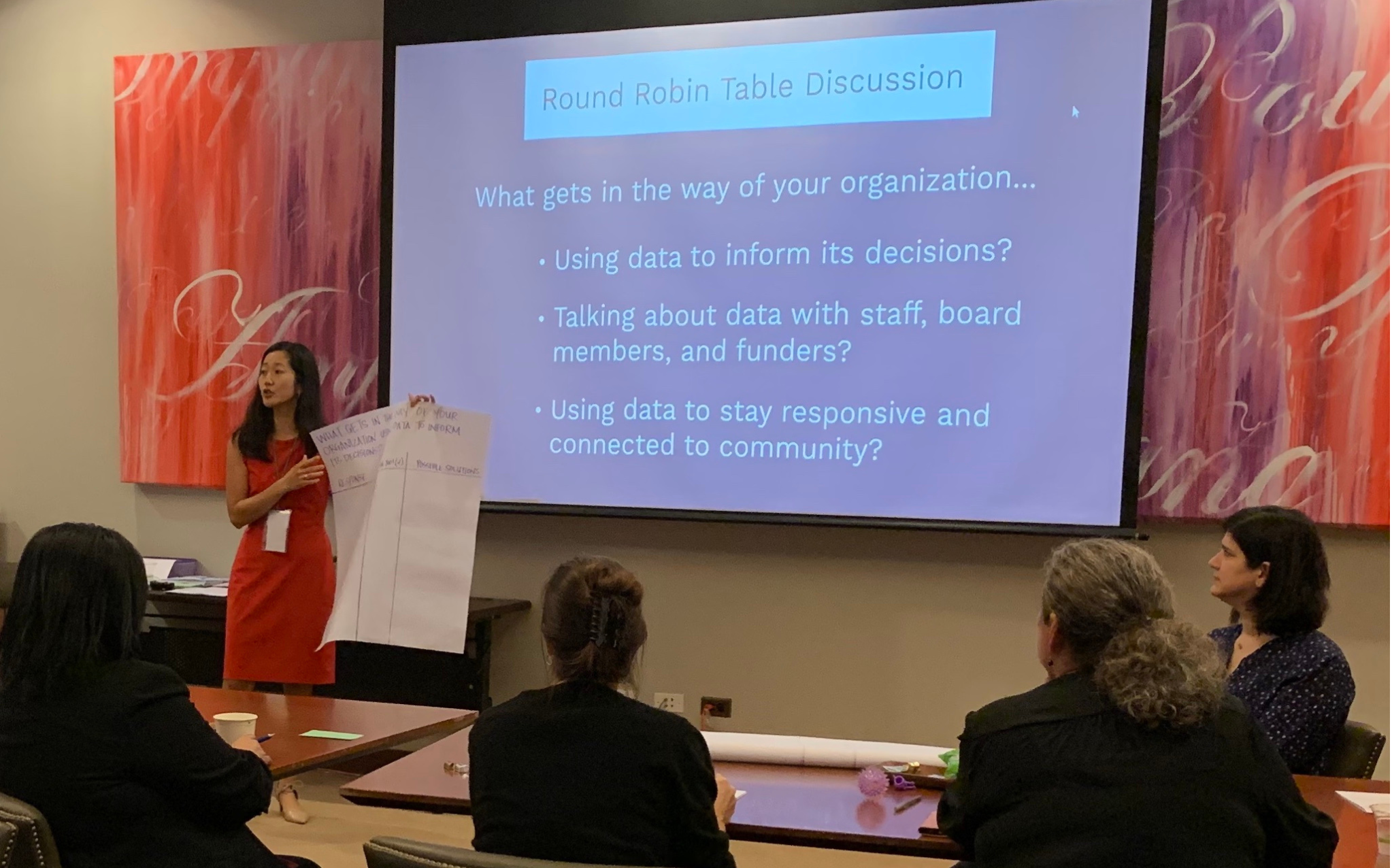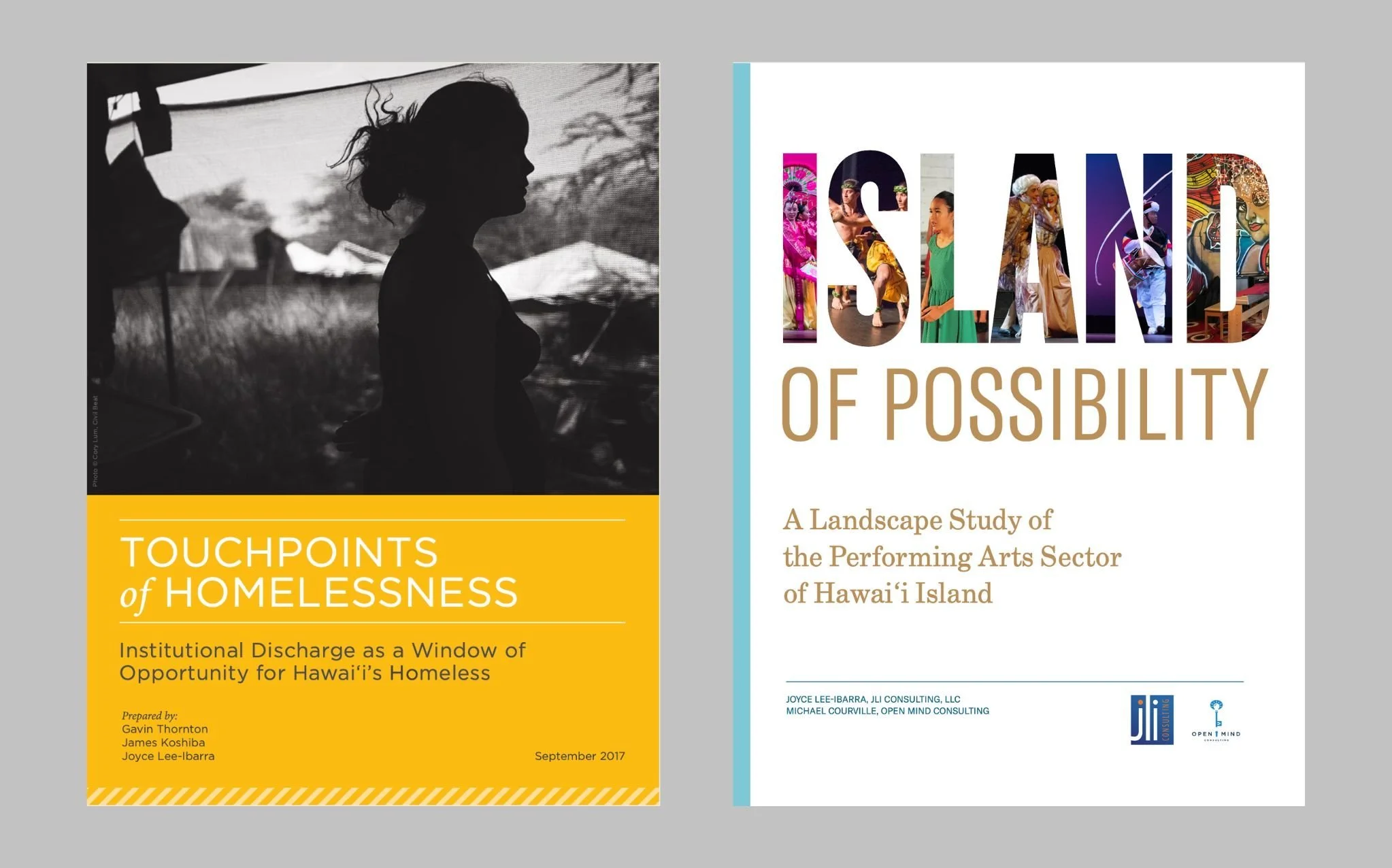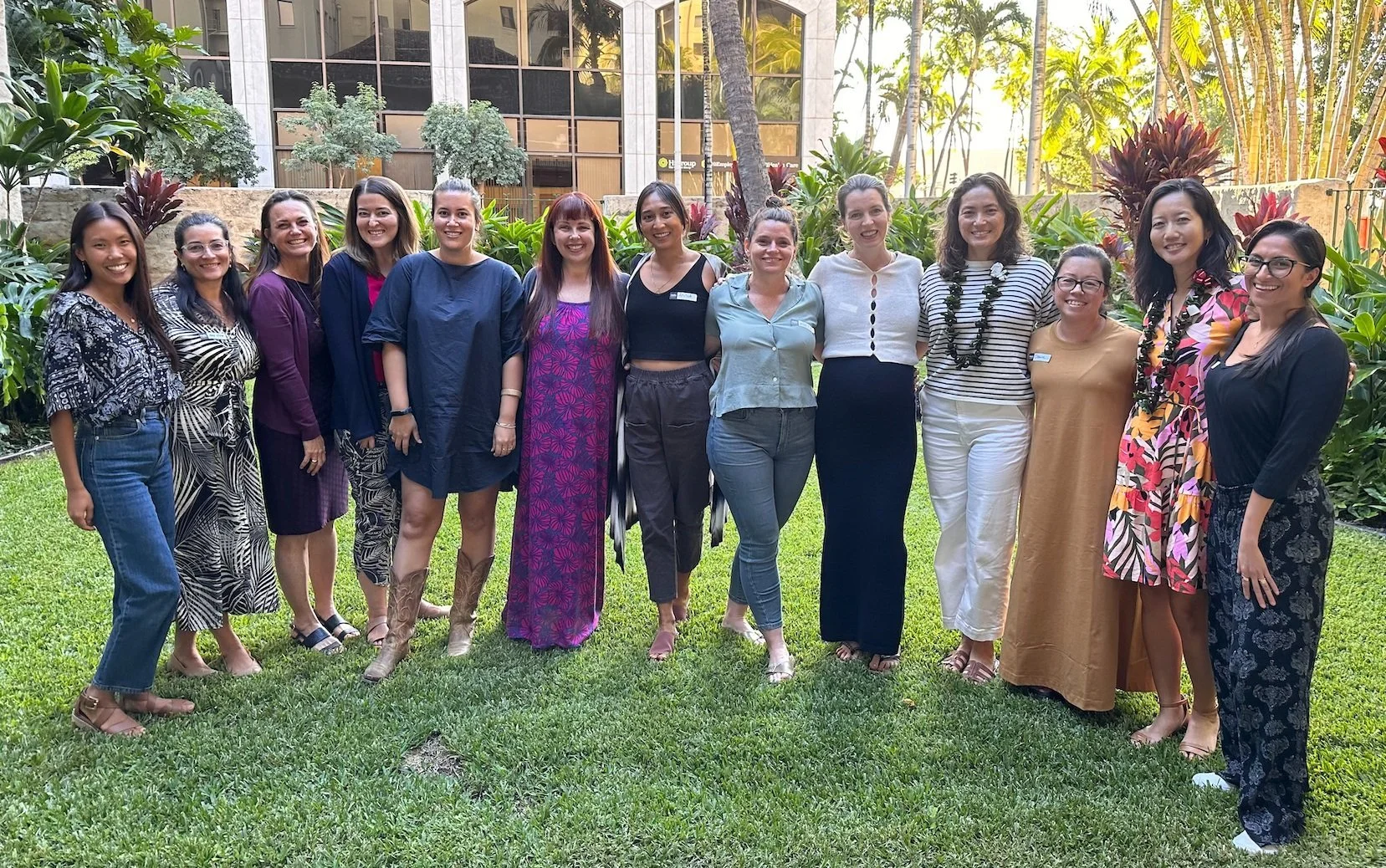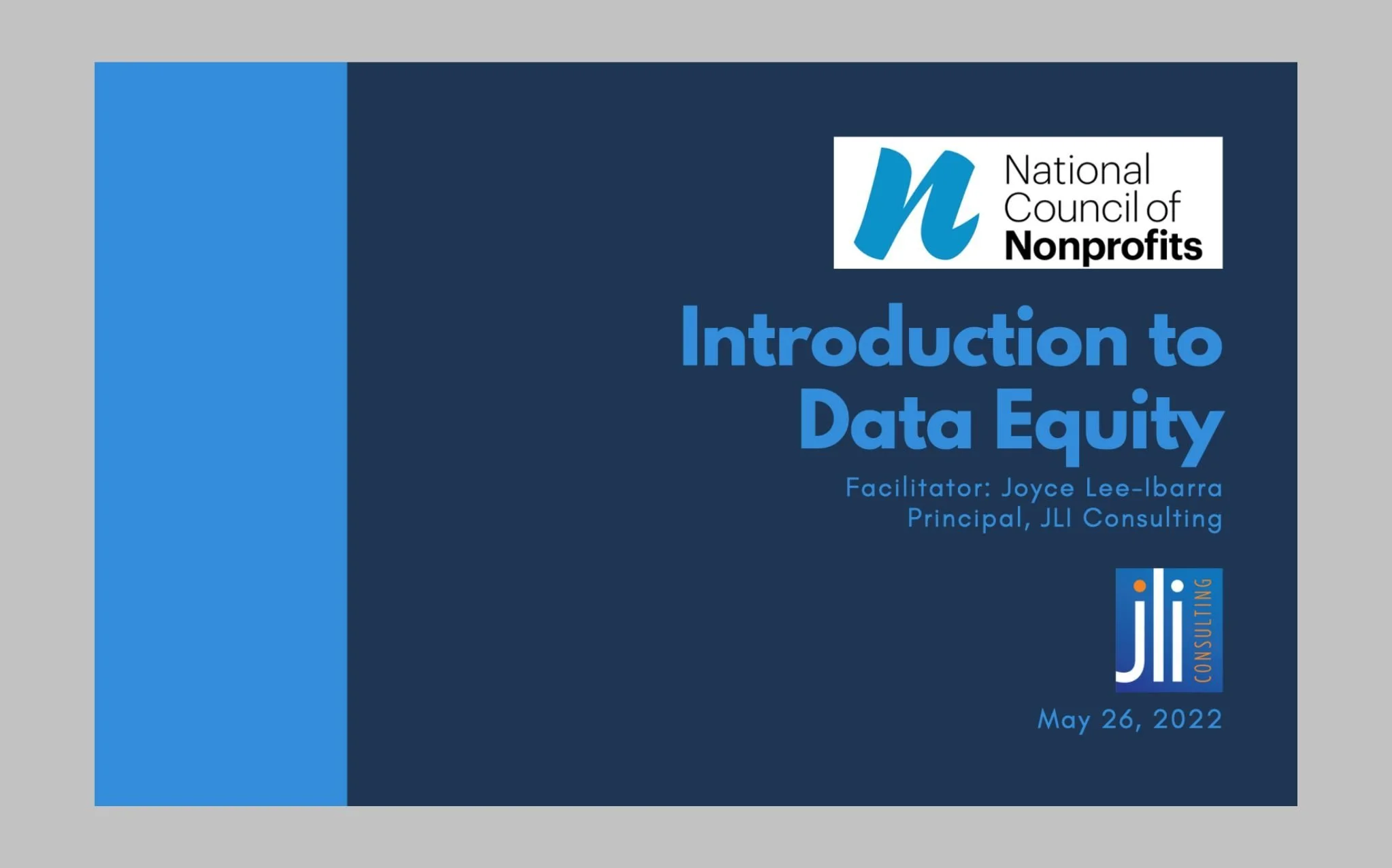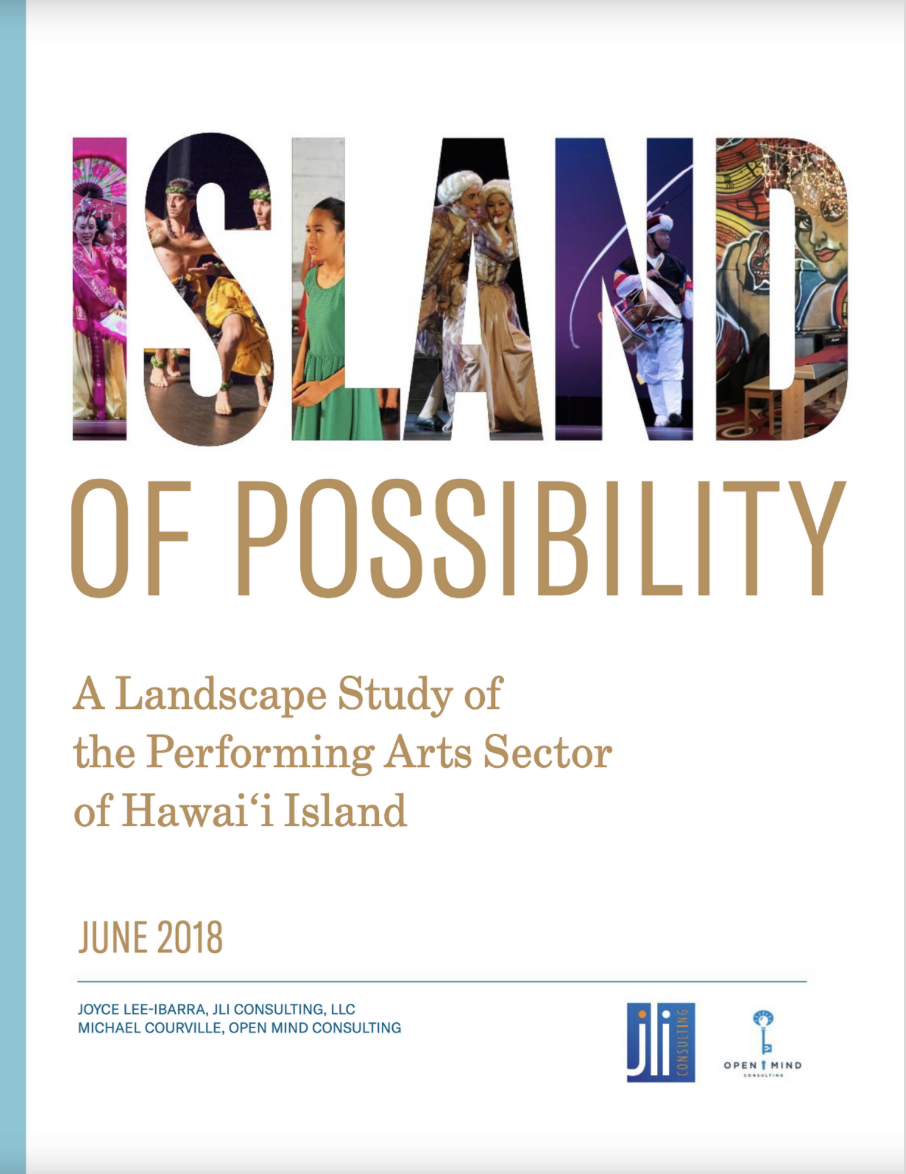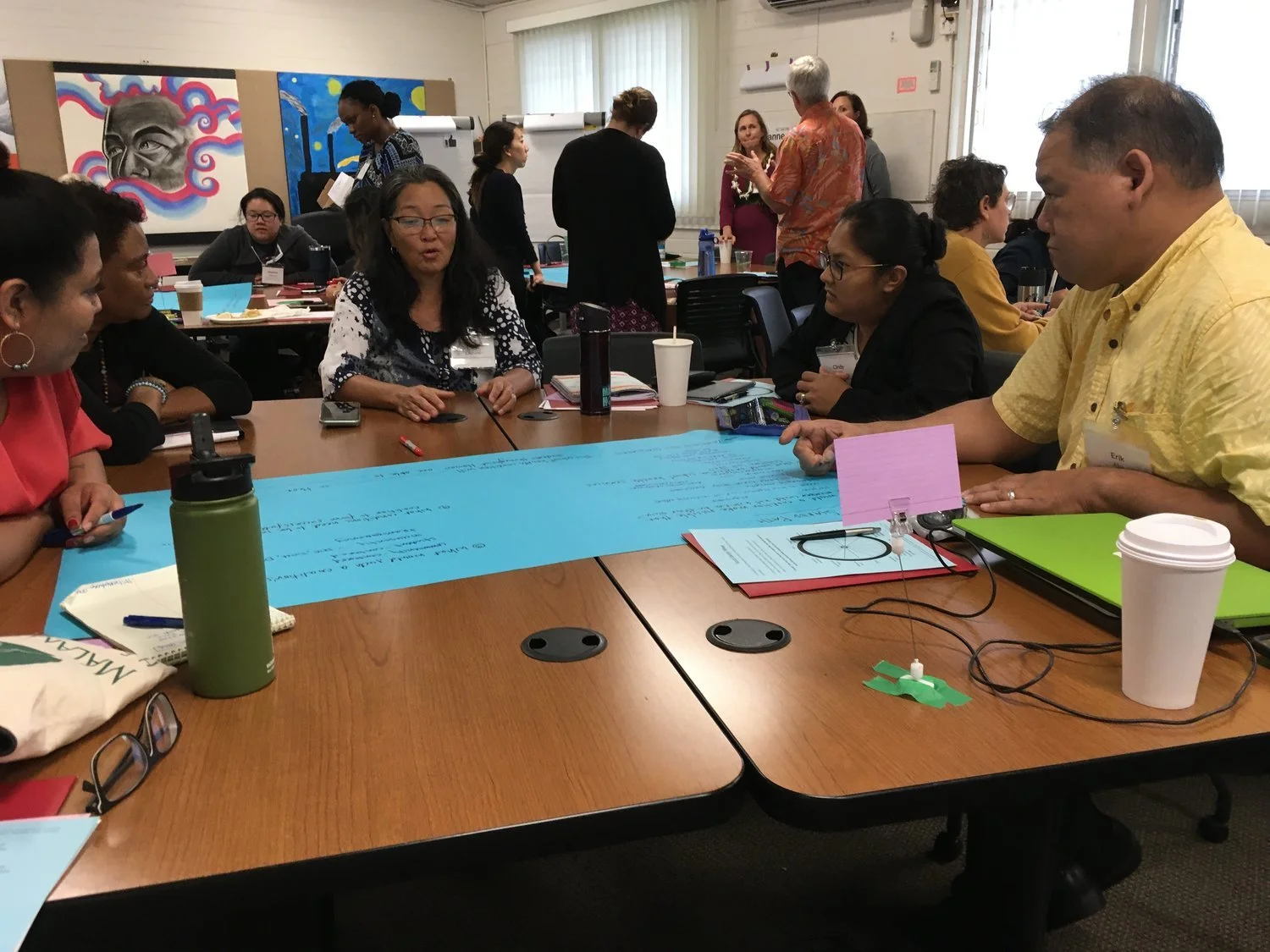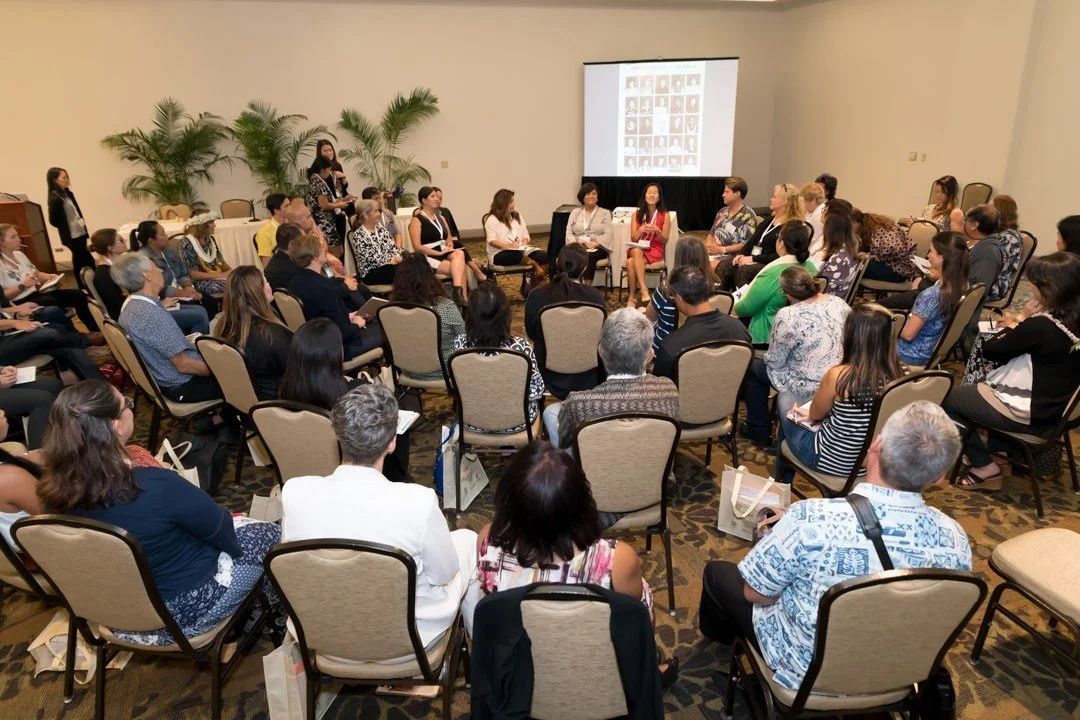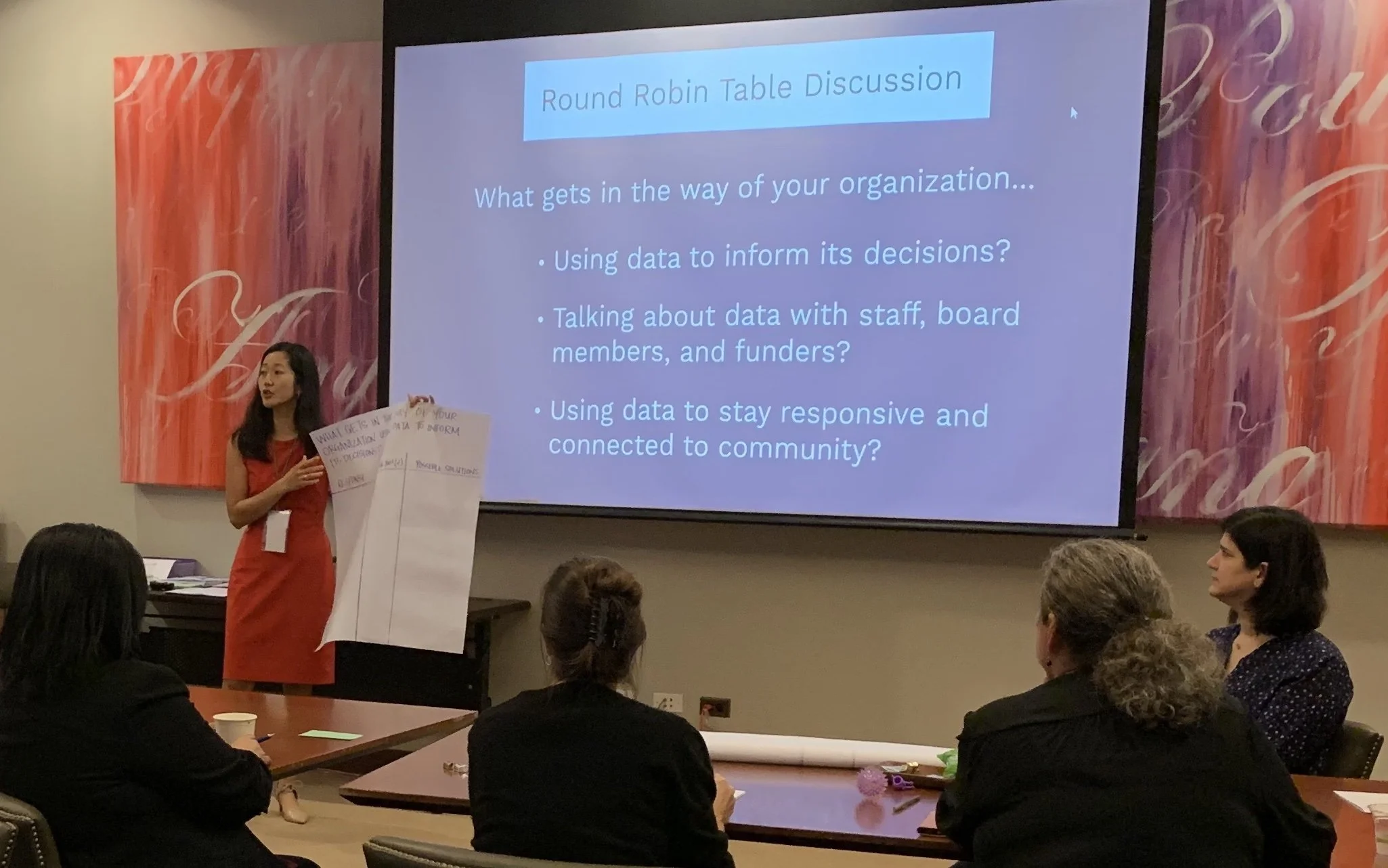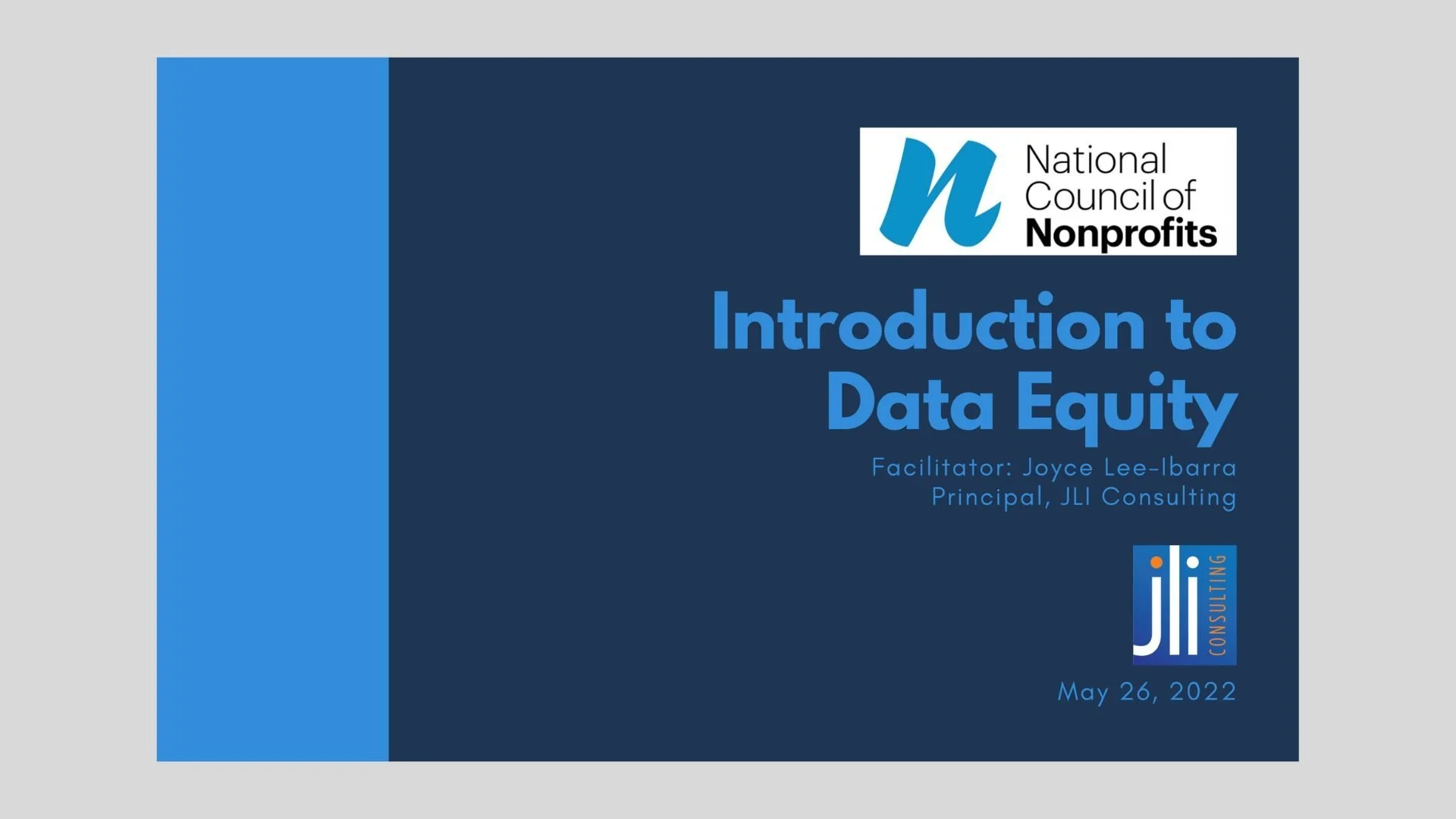Our Services
How might we reimagine evaluation to be in service of equity and community?
How might the perspectives of community members shape our priorities and strategies?
How might thoughtfully-guided conversations shape not only what we do together, but also how we “be” together?
What is data equity, and how might we more intentionally bring an equity lens to our production and consumption of data?
Equity-Centered Evaluation
How might we reimagine evaluation to be in service of equity and community?
We help organizations move beyond the traditional models of evaluation by centering people over process.
We encourage movement away from compliance, judgment, and transactions, and instead towards learning, experimentation, and relationships.
And rather than reinforcing “status quo” evaluation approaches that often cede power and decision making to those holding the purse strings, we see evaluation as a tool for advancing equity by centering communities and their insights into what is valuable, meaningful, and worthy of measurement.
Our approach to evaluation is heavily informed by the Equitable Evaluation Framework™, as well as the Trust-Based Framework for Learning & Evaluation in Philanthropy.
This means, in part, that we bring an exploratory approach to evaluation that:
(a) centers trust-building and relationships as integral to successful learning efforts;
(b) acknowledges power dynamics that may exist between funders and grantees; and
(c) recognizes the importance of historical, institutional, and cultural contexts of evaluation efforts.
Check out the videos below for a few examples of Joyce’s perspective on equity-centered learning and evaluation.
Presenter on equitable evaluation for Funder Hui Lunch & Learn, May 31, 2022
Interviewee on equity-centered evaluation and power dynamics of knowledge frameworks, Stanford Center on Philanthropy and Civil Society, Spring 2021
Community Research
How might the perspectives of community members shape our priorities and strategies?
It’s a fact that’s often hiding in plain sight:
Community members closest to the issues at hand are often the best equipped to inform priorities, suggest solutions, and generate strategies for addressing those issues.
But too often, community perspectives are an afterthought.
And the richness of narrative perspectives—where people’s thoughts aren’t simply reduced to numbers and statistics, but are given full voice, in their own words—sometimes fall to the wayside.
At JLI Consulting, we conduct qualitative community research, such as focus groups and interviews, that captures texture that can be lost in working with quantitative data alone. Through analysis of stories, anecdotes, and discussion, we identify overarching themes and reveal nuances that can be difficult for closed-ended data to reflect.
A few examples of our community-informed approach to better understanding complex issues:
Touchpoints of Homelessness: Institutional Discharge as a Window of Opportunity for Hawaiʻi’s Homeless, which analyzes emancipation from foster care, discharge from hospitals and emergency rooms, and release from incarceration as potential avenues for intervention and prevention of homelessness in Hawaiʻi.
Island of Possibility: A Landscape Study of the Performing Arts Sectors of Hawaiʻi Island, which built on interviews, focus groups, and survey data to illuminate the unique strengths and opportunities for growth within Hawaiʻi Island's performing arts communities.
Facilitation
How might thoughtfully-guided conversations shape not only what we do together, but also how we “be” together?
A powerful conversation is more than just a volley of words between people; it’s an opportunity to share insights, to be in fellowship with others, and to truly see and hear the wisdom of others.
Gathering people for meaningful, learning-driven conversations requires thoughtful preparation not only for what people will discuss, but also how you hope they will feel: engaged, curious, pyschologically safe, respected.
At JLI Consulting, we seek to facilitate generative conversations that lead to new understanding and cross-pollination of ideas.
We create conditions for people to have meaty, meaningful discussions, leaving plenty of space for participants to marinate, clarify their own perspectives, and think out loud with others.
And we employ “mixed methods facilitation,” using a variety of activities and formats for prompting reflection, sharing ideas, and collecting insights.
Participants of school health coalition gathering, sponsored by Hawaii Department of Education
Joyce with co-facilitator, Ophelia Bitanga-Isreal, at HANO conference session on Identity, Power, and Privilege in Hawaii’s Nonprofit Sector
Joyce with participants from workshop on common applications for grantees, sponsored by Funder Hui
Data Equity Training
What is data equity, and how might we more intentionally bring an equity lens to our production and consumption of data?
What is data equity, and why is it important?
As Joyce writes in this LinkedIn post:
Data equity “refers to the consideration, through an equity lens, of the ways in which data is collected, analyzed, interpreted, and distributed. It underscores marginalized communities’ unequal opportunities to access data and, at times, their harm from data’s misuse. It raises the issue of data sovereignty, and the democratization of data. And data equity pushes us to consider the ways that data can reinforce stereotypes, exacerbate problems like racial bias, or otherwise undermine social justice.”
We provide workshops and trainings to familiarize people with the notion of data equity, and provide concrete examples to illustrate key data equity concepts:
Data is not inherently neutral or objective
Data can create and perpetuate power dynamics
Data transparency generates trust, and trust advances data equity
We also provide guidance on demographic data collection, common data collection pitfalls to avoid, and promising practices that help people and organizations “walk the talk” of approaching data more equitably.
Clients and Partners say…
Subscribe to
Something to Chew On
Something to Chew On is a newsletter I’ve cooked up to share some of my ruminations and marinations with family, friends, and colleagues.
More importantly, though, it’s meant as an invitation to (re)connect, reflect, and be in conversation, at a pace that works with all the goings-on in everyone’s lives.
New issues will go out about once every month or two. Happy reading!
